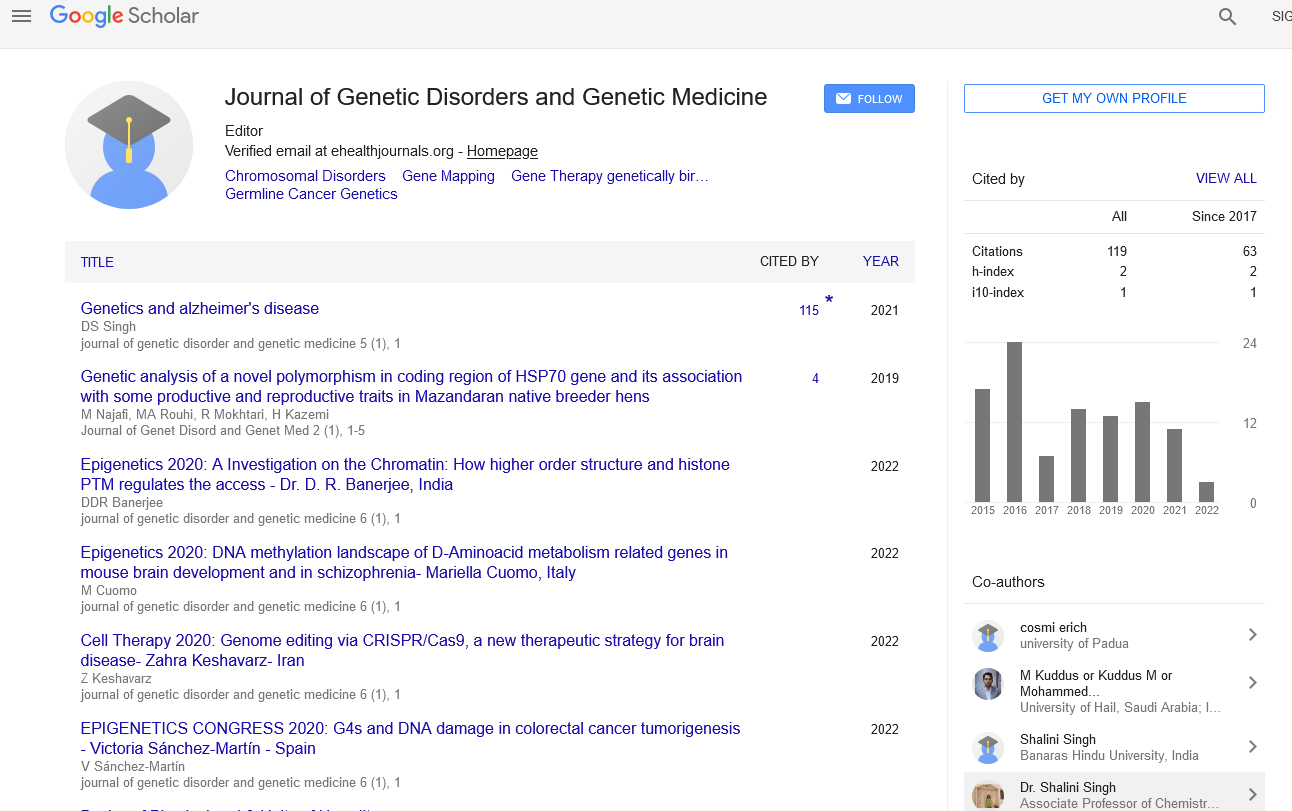
Sign up for email alert when new content gets added: Sign up
Abstract
Electrotransference of the mouse growth hormone gene associated with the administration of mesenchymal stem cells, in a murine model of osteogenesis imperfecta
Author(s): Alissandra de Moura Gomes*Osteogenesis imperfecta (OI) is an inherited connective tissue disease characterized by fragility, deformity and low bone density, as well as by other clinical manifestations. Type I OI is the mildest and most common form of the disease, caused by mutation in the COL1A1 gene, resulting in the production of only ~50% of normal collagen. The corresponding animal model is the oim mouse, presenting a phenotype very similar to human type I OI. We aim, for the first time, at evaluating the electrotransference of mouse growth hormone (mGH) gene, encoding a protein that already showed therapeutic effects, together with the administration of murine mesenchymal stem cells (MSCs), for improving heterozygous oim mice phenotype. We already prepared and evaluated two populations of MSCs (bone marrow and adipose tissue) that emit red fluorescence. These are administrated in different amounts and via three routes (intravenously, intraperitoneally or locally into the femoral condyles) using the In Vivo Imaging System and histological sections of femur, liver and kidneys, a methodology we recently set up and adapted to our specific conditions. Then, we will administer the most efficient MSCs population combined with mGH gene electrotransfer. In this bioassay, we are ready to analyse different parameters: body weight, total body, tail and femur length, bone mineral density and femur fragility by a biomechanical flexion test. The results will indicate if the administration of GH by gene therapy, together with MSCs infusion, can be a promising treatment for improving type I OI phenotype.




